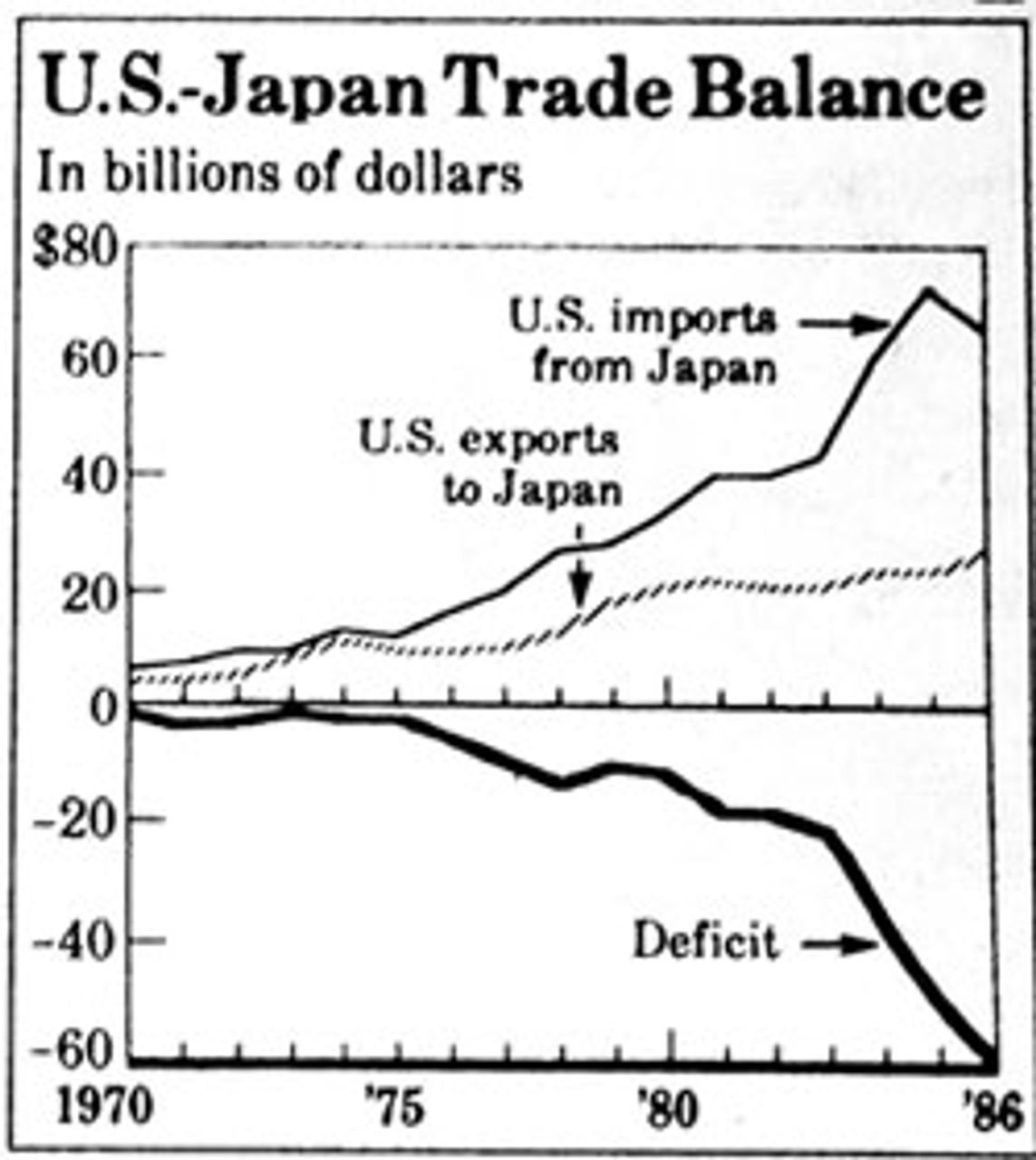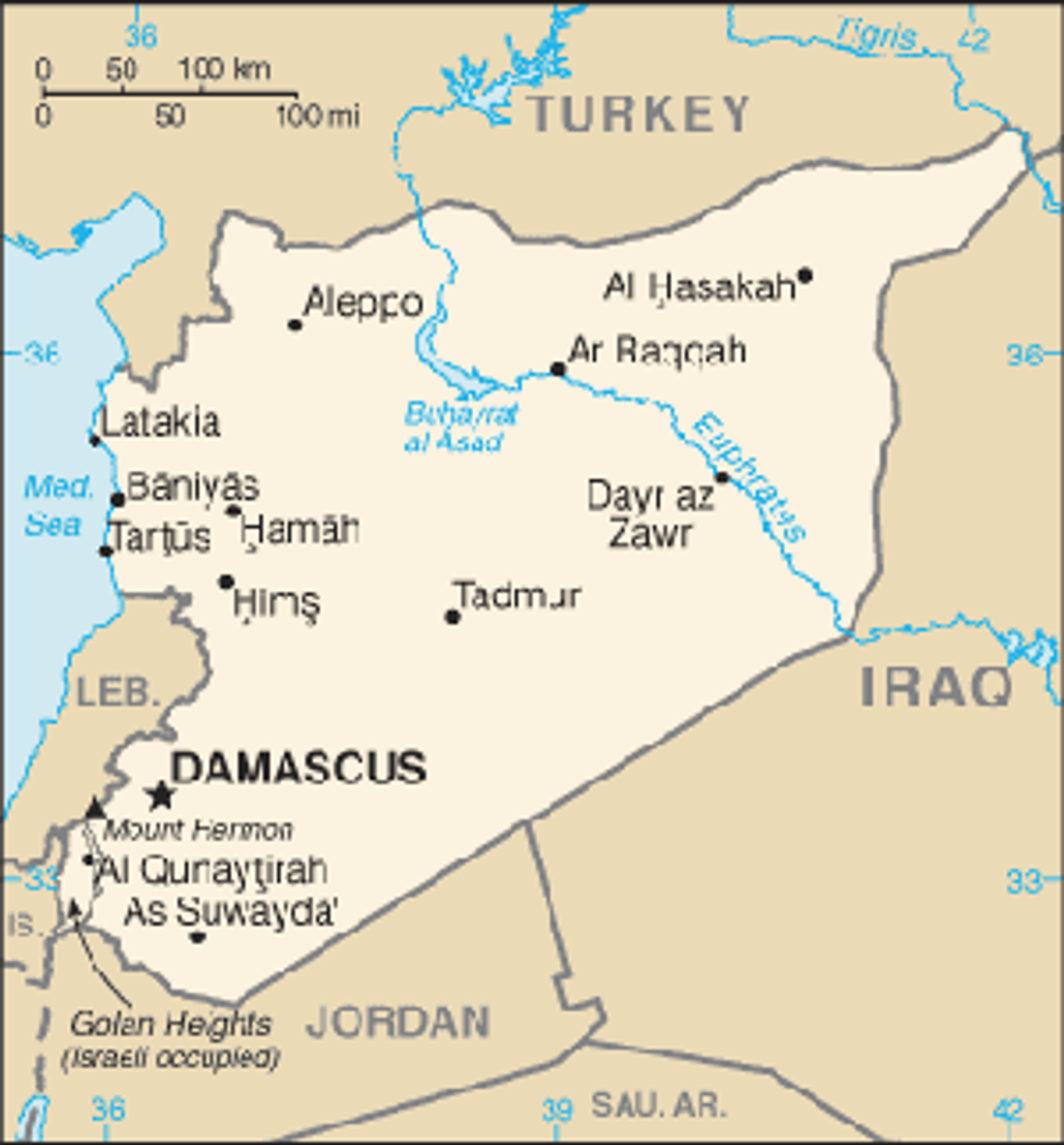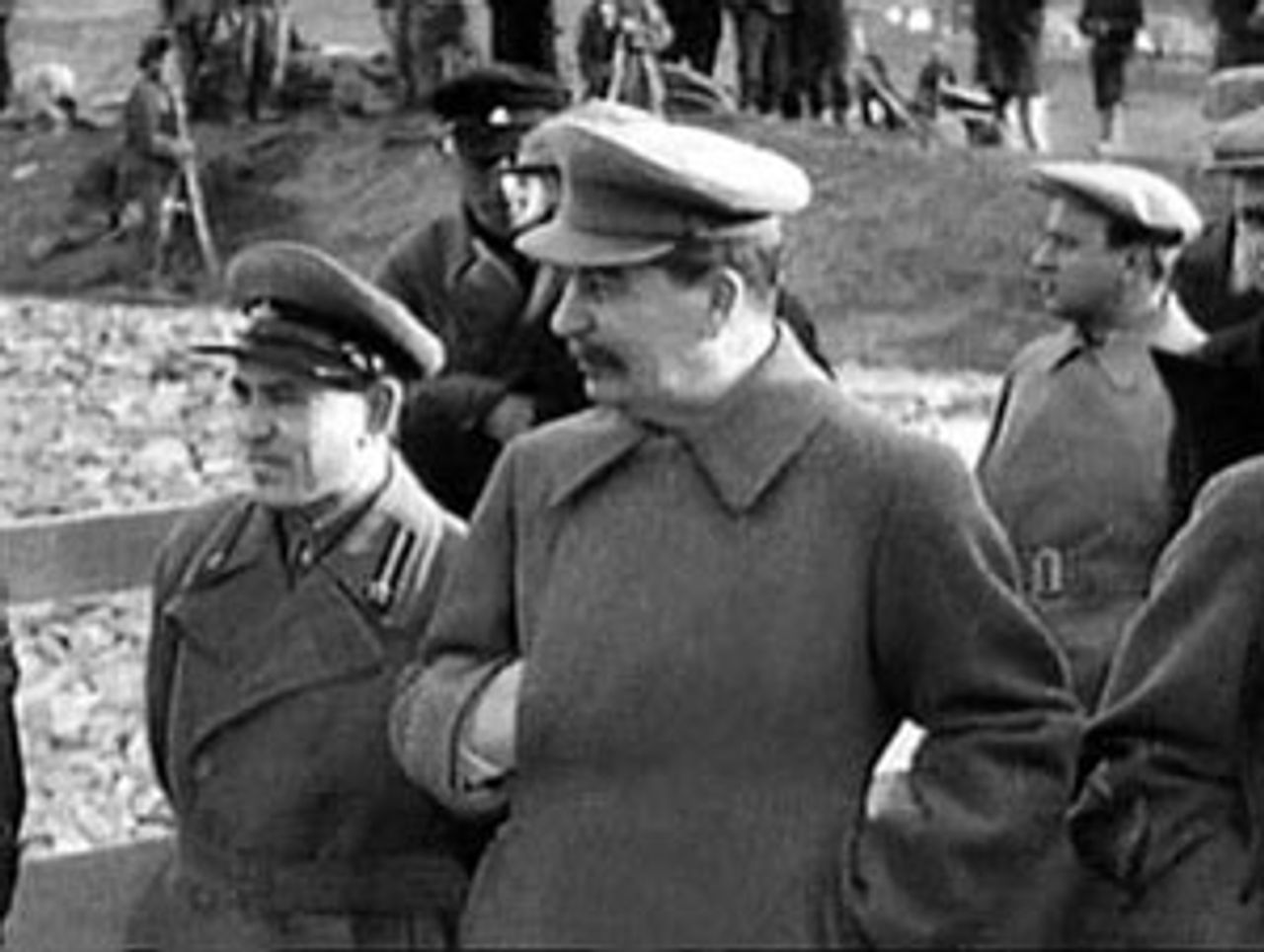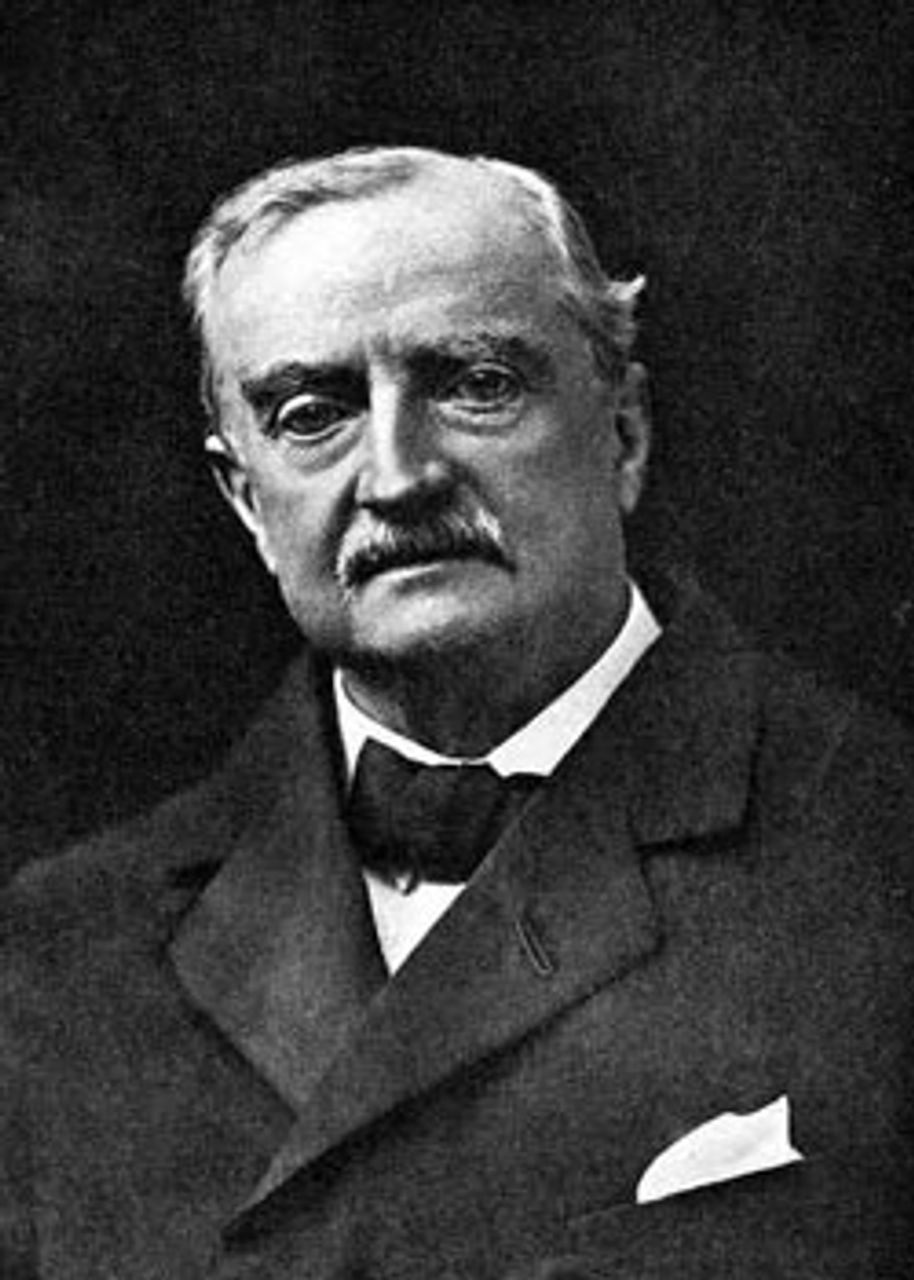This Week in History provides brief synopses of important historical events whose anniversaries fall this week.
25 Years Ago | 50 Years Ago | 75 Years Ago | 100 Years Ago
25 years ago: Reagan imposes tariffs against Japan
 On March 27, 1987, US President Ronald Reagan’s Secretary of Commerce, Malcolm Baldridge, announced the first American trade retaliation against Japan in the post-World War II period. A punitive 100 percent tariff was imposed on $300 million worth of Japanese consumer electronics imports in response to what the administration claimed was a violation of the bilateral agreement on semiconductors reached by the two nations the previous July.
On March 27, 1987, US President Ronald Reagan’s Secretary of Commerce, Malcolm Baldridge, announced the first American trade retaliation against Japan in the post-World War II period. A punitive 100 percent tariff was imposed on $300 million worth of Japanese consumer electronics imports in response to what the administration claimed was a violation of the bilateral agreement on semiconductors reached by the two nations the previous July.
At that time, Tokyo had agreed to curtail the alleged dumping of semiconductor microchips by Japanese manufacturers on the world market and make its internal market more open to American computer and electronics companies.
Prior to the semiconductor tariffs, which came shortly before the visit to Washington of Japanese Prime Minister Yashiro Nakasone, trade disputes between the US and Japan were handled voluntarily. In an attempt to ease the crisis in the American automobile industry in the 1980s, Japan had previously agreed to cut its volume of almost two million cars and trucks exported to the US by 25 percent. By early 1987 the Japanese economy had fallen into crisis, due largely to the precipitous fall in the value of the US dollar in relation to the yen, a slide which the Reagan administration unofficially encouraged.
Democratic Congressman John Dingell of Michigan, close to the US trade unions, stated his approval of the tariff, but warned that “If the administration’s intention is to head off congressional action on trade, the announcement is certainly too late and, given its limitation to one sector, too little.”
50 years ago: Military coup topples Syrian government
 On March 28, 1962, Syria’s military announced it had overthrown the country’s three-month-old elected government, suspended parliament and assumed full power. Syrian radio, broadcasting from the capital of Damascus, declared that the junta was the same one that had the previous year ended the country’s union with Egypt, known as the United Arab Republic.
On March 28, 1962, Syria’s military announced it had overthrown the country’s three-month-old elected government, suspended parliament and assumed full power. Syrian radio, broadcasting from the capital of Damascus, declared that the junta was the same one that had the previous year ended the country’s union with Egypt, known as the United Arab Republic.
Although he did not initiate the coup, Gen. Abdel Karim Zahreddin, Syria’s military chief-of-staff, headed up the new junta. Within two days, over 100 political leaders were arrested, including the president, Nazem el Koudsi, the premier, the entire cabinet and a leader of the Baath Socialist Party. Zahreddin said the civilian leaders would stand trial.
The radio broadcast denounced “imperialist powers,” Israel, and declared that the government of President Koudsi had not ruled in the “national interest.” The Koudsi regime had attempted to reorient Syrian foreign policy toward the US. The Kennedy administration had rewarded this with favorable trade agreement for wheat exports.
The following day the junta announced that it would implement “constructive and just socialism,” “derived from the necessities of our own society,” and would “seek good relations with “dear Egypt and sister Iraq.”
The coup sought to block the striving of the Syrian masses, who were broadly attracted to socialism, opposed US and Israeli imperialism, and sought real unity among the Arab masses of the Middle East. The Syrian Communist Party, described by the New York Times as “the most powerful subversive faction of all,” wielded deep influence in the Syrian working class. The Stalinists betrayed this support, subordinating the workers to the UAR in line with the foreign policy aims of the Stalinist bureaucracy in the Soviet Union.
75 years ago: Stalin calls for extermination of political opponents
 Stalin in 1937
Stalin in 1937On March 28, 1937 the Soviet Union made public contents of a speech made by Stalin to the central committee of the USSR earlier in the month. Without once mentioning Leon Trotsky, co-leader of the Russian revolution, Stalin called for the extermination of the international Trotskyist movement.
Stalin told his co-conspirators, “We shall continue destroying these remnants of our beaten enemy as we have destroyed them in the past, as we are destroying them now. We must and shall destroy them until there are no more remnants left.”
During the speech Stalin sought to make scapegoats of the Trotskyist movement, painting them as saboteurs responsible for the frequent disruptions of Soviet industrial production. In reality, Stalin’s break-neck industrialization had led to unsafe speed-ups, the overworking of machinery, exhausted workers, and dilapidated plants—all caused by unreasonable quotas which exceeded the elasticity of the productive forces. Managers, technicians and scientists were being blamed and labeled “Trotskyist wreckers” when machinery inevitably failed or production was held up.
Exiled in Mexico, Trotsky was deeply engaged in systematically undermining the charges against him made during the Moscow trials. Despite the immense pressure Stalinism brought to bear on Trotsky, including the protracted persecution and murder of his closest followers and family, he did not flag. Trotsky challenged the Stalinists by stating that he would return voluntarily to Russia if just one of their charges was established with solid evidence, rather than a forced confession.
Trotsky’s followers challenged the Stalinist smear campaign by forming a committee of intellectuals and longtime socialists to analyze the allegations. A Joint Commission of Inquiry was formed with John Dewey, America’s leading philosopher and educationalist, as the chairman. John F. Finerty, who had acted as a defense lawyer in the infamous case of Sacco and Vanzetti, would act as the Commission’s legal counsel.
100 years ago: Mass home rule demonstration in Ireland
 John Redmond
John RedmondOn March 31, 1912, an estimated 100,000 people participated in a demonstration in Dublin in favor of “home rule.” The rally was called by conservative sections of the Irish nationalist movement, who favored accommodation with the British, to promote the Third Home Rule Bill, which was to be formally advanced by the British prime minister on April 11. The bill proposed the establishment of a bicameral Irish parliament to manage national affairs, but under the control of the British Empire.
John Redmond, a conservative politician who led the Irish Parliamentary Party, was the most prominent speaker at the rally. Redmond endorsed the bill and said that its purpose was “to enable Ireland … to enter for the first time into co-partnership in the Empire with perfect good faith and with perfect loyalty.” Redmond “thanked God” that the massive British coal strike hadn’t brought down the British government, or derailed the home rule bill.
A number of other figures in the broad Irish nationalist movement, including Patrick Pearse, a future leader of the 1916 Easter Uprising against British rule, also addressed the rally. Pearse attempted to appease both conservative proponents of a home rule bill and more radical elements in the Irish nationalist movement, by employing anti-British rhetoric. He expressed his tentative support for a bill, saying, “Let us unite and we will wring a good measure from the Gall [the British].” However, he raised the specter of a “red war throughout Ireland” if the British “tricked” the home rule movement, a move he said should be met “with violence and the edge of the sword.”
The Third Home Rule Bill was repeatedly blocked by the House of Lords, and was never enacted.
